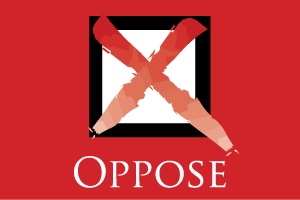News from: CalChamber
Legislation that slows broadband deployment is being opposed by the California Chamber of Commerce and associations committed to preventing digital discrimination of access to internet services.
AB 2239 (Bonta; D-Alameda) is scheduled to be considered on June 24 by the Senate Energy, Utilities and Communications Committee.
In a letter to legislators, the CalChamber and coalition opposing AB 2239 explain how the bill runs counter to the goal of providing greater access to reliable broadband.
Discourages New Deployments
AB 2239 will discourage internet service providers (ISPs) from undertaking new deployments and upgrading to the latest technologies because of the standard it incorporates — a disparate impact standard, rather than a disparate treatment standard.
The disparate impact standard will almost certainly be challenged in court and is contrary to good public policy, the letter stated.
What makes the bill vulnerable to challenge is it purports to regulate an overly broad set of practices under a very open-ended standard of liability.
AB 2239 is poor public policy because it sets an unworkable standard for ISPs that would leave them exposed to potential liability relating to new network investments.
Better Approach
A better approach, the letter stated, is the far more common disparate treatment standard. The disparate treatment standard is intent-based and would ensure AB 2239 creates a workable and enforceable framework in California without relying on disputed aspects of a Federal Communications Commission (FCC) order that is being challenged in federal court.
Under a disparate treatment standard, broadband providers will not hesitate to undertake new deployments or upgrades or run consumer-friendly promotions for fear of being subject to frivolous claims and unwarranted liability.
With a disparate treatment standard, broadband providers will be held to account for actual discriminatory policies that purposefully disadvantage consumers based on race, ethnicity or another protected status.
The disparate treatment standard provides an important enforcement mechanism against actual and intentional discriminatory conduct. Unlike a disparate impact standard, a disparate treatment standard would not penalize ordinary-course business decisions and so would preserve incentives to deploy and modernize broadband infrastructure.
Federal Missteps
The letter points out that the FCC digital discrimination rules are the subject of legal challenges because the FCC chose to regulate a broad set of practices under disparate impact liability.
Given that questions about the validity of the FCC rules still await court review, it would be imprudent for California to in effect place the FCC rules in California law, the letter notes.
Issues identified with the FCC rules include their scope (which should be limited to broadband deployment); allowing respondents to raise legitimate business justifications (including technical and economic feasibility) as defenses; and the need for safe harbors to give regulatory certainty to companies that act in good faith.
Other Concerns
Other concerns about AB 2239 include:
- the need for procedural safeguards, such as reasonable time limits for resolving complaints;
- the need to make sure the California Public Utilities Commission is explicitly precluded from pursuing any general investigations or rulemaking on digital discrimination of access; and
- uncertainty over whether it will lead to frivolous claims; the bill should include a statement that it does not create a private right of action under its own terms or any other statute.
